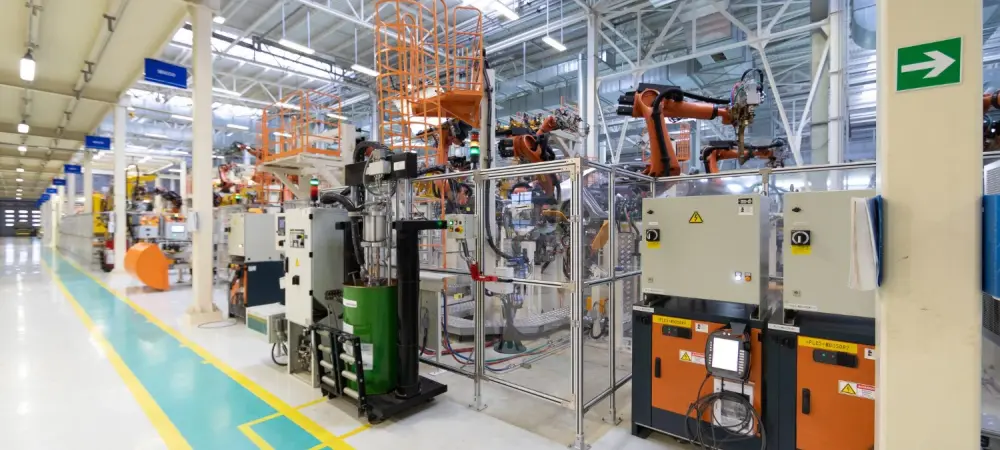NVIDIA’s recent initiative to establish an industrial AI cloud facility in Germany could reshape the manufacturing landscape across Europe. This ambitious project introduces a significant shift toward incorporating advanced technologies like artificial intelligence (AI) and machine learning (ML) into manufacturing processes. The center boasts 10,000 high-performance GPUs with capabilities that promise to support a vast range of complex industrial tasks. This represents a pivotal change from traditional computing paradigms, offering computational power specifically tailored for intricate manufacturing operations. With this move, NVIDIA aims to propel Europe’s industrial sector into a new era of digital transformation, focusing on enhancing efficiency and competitiveness in production rather than on consumer applications.
Harnessing Advanced Technologies
The introduction of NVIDIA’s AI-powered facility in Germany signifies a new chapter in manufacturing efficiency and innovation. By equipping the center with NVIDIA DGX B200 systems and RTX PRO Servers, manufacturers can simulate, predict, and optimize operations with unprecedented precision. These technological advancements facilitate tasks that previously required extensive resources, such as real-time operations on the factory floor and product design simulations. The facility’s computational power equates to thousands of supercomputers working collaboratively, providing capabilities beyond the reach of typical manufacturing processes. The focus now spans sophisticated simulations that help build smarter factories capable of adapting to rapidly changing conditions and demands.
NVIDIA’s industrial AI cloud aligns with the vision of its CEO, Jensen Huang, who proposes a ‘two factories’ philosophy for manufacturers. This approach suggests the need for both a physical production facility and a digital counterpart that generates insights to optimize production. The philosophy aims to create digital twins of manufacturing sites, allowing manufacturers to test and refine methods virtually before implementation. This dual strategy not only maximizes efficiency but also opens possibilities for innovative production techniques. As companies navigate globalization pressures, they increasingly view technological superiority in manufacturing as an essential competitive advantage. Hence, NVIDIA’s facility symbolizes a potential pathway for Europe’s industry to thrive amid global competition.
Real-world Applications and Collaborations
The practical application of NVIDIA’s technology is already visible, with several European manufacturers recognizing tangible benefits. Leading companies such as Volvo Cars, Schaeffler, and Mercedes-Benz have leveraged these advanced computational resources to streamline operations and improve product design and factory efficiency. By fostering early use cases, these manufacturers showcase how digital twins can refine production methods, ultimately enhancing manufacturing outcomes. The successes observed in these collaborations embolden other companies to explore adopting AI-driven strategies, offering a glimpse into the transformative impact on manufacturing processes across the continent.
Integral to NVIDIA’s approach are partnerships with established industrial software leaders like Siemens, Ansys, and Cadence. These alliances allow integration of NVIDIA’s AI capabilities into existing platforms, enabling manufacturers to access enhanced tools while utilizing familiar software environments. Such collaborations fortify the facility’s role not only as a technology provider but also as a catalyst for innovation within Europe’s manufacturing ecosystem. Manufacturers looking to harness AI’s potential benefit from these synergistic relationships, leveraging software tools that merge cutting-edge AI technology with proven industrial practices. Together, these partnerships reflect a broader trend toward embracing technology to revolutionize manufacturing.
Strategic Impact and Future Considerations
The establishment of this AI cloud facility marks a strategic investment in Europe’s industrial future, aiming to reinforce its status as a global manufacturing hub. NVIDIA’s focus on strengthening the continent’s industrial capabilities comes at a time when competition from Asia and North America intensifies. The facility’s potential to improve production efficiency and quality offers a competitive edge needed for maintaining Europe’s leading position. By investing in digital solutions, NVIDIA acknowledges Europe’s role in the global manufacturing landscape, positioning it to adapt to new technologies and emerging demands. As manufacturers navigate evolving market conditions, this initiative provides a robust framework for innovation.
Despite the promising outlook, several challenges remain. Infrastructure investment and adaptation to new technologies pose significant hurdles for manufacturers. These operations require new approaches and training to maximize the benefits offered by enhanced computing resources. Concerns also arise around data security and technological dependence, as centralized AI facilities potentially expose businesses to supply chain or proprietary information risks. Addressing these challenges is vital for realizing the facility’s full advantages, ensuring manufacturers capitalize on technological strides without jeopardizing security or stability. Balancing innovation with precaution emerges as a key consideration as NVIDIA facilitates the digital transformation of European manufacturing.
Charting New Frontiers
The debut of NVIDIA’s AI-driven facility in Germany marks a pivotal moment in enhancing manufacturing efficiency and innovation. Outfitted with NVIDIA DGX B200 systems and RTX PRO Servers, this center empowers manufacturers to simulate, predict, and optimize processes with unmatched precision. Such technology enables tasks like real-time operations on factory floors and product design simulations, which previously demanded significant resources. The center’s computing power rivals thousands of supercomputers working together, offering capabilities that typical manufacturing processes can’t match. It enables complex simulations to create smarter factories ready to adapt to shifting conditions and demands. NVIDIA’s industrial AI cloud aligns with CEO Jensen Huang’s ‘two factories’ philosophy, positing that manufacturers need both a physical plant and a digital twin to generate insights and refine processes before real-world application. This dual strategy boosts efficiency and unlocks new production methodologies. As globalization presents challenges, technological strength in manufacturing becomes vital for competitive edge. NVIDIA’s initiative offers a strategic direction for Europe to maintain industrial leadership on the global stage.

